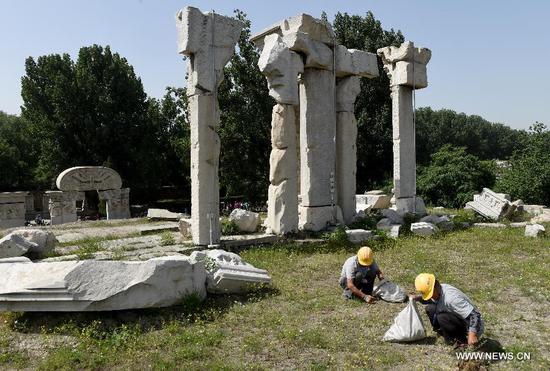China has unveiled plans to further deepen reform and boost innovation in three coastal pilot free-trade zones to improve the business environment and enhance the country's opening-up, a senior commerce official said on Thursday.
The new drive for reform and opening-up in free-trade zones in Guangdong and Fujian provinces and in Tianjin will focus on high quality development, supply-side structural reform, institutional innovation and risk prevention, according to a document released recently by the State Council.
Ren Hongbin, assistant commerce minister, said the zones will be given greater decision-making powers to chart new paths for opening-up, improve government management and foster new growth drivers and a competitive edge.
"The move shows China will continue its steps to open the local market, especially in the fields of foreign investment management, trade facilitation, financial innovation and the transformation of government functions," said Xu Hongcai, an economist at the China Center for International Economic Exchanges.
The deepening reform and opening-up in free-trade zones is one of China's concrete steps to improve the business environment and facilitate global trade, said Wei Jianguo, a former vice-minister of commerce.
Tianjin's free-trade zone will support the coordinated development of Beijing, Tianjin and Hebei province, and proposed measures in 16 areas-such as advancing the incubation of cutting-edge technologies and expanding the scale of automobile and passenger jet manufacturing and ship maintenance services.
Deepening cross-Straits economic cooperation and accelerating the development of the core zone of the 21st Century Maritime Silk Road are included in the plan to further drive Fujian's free-trade zone. Twenty-one new policies will be key, including stepping up financial ties between Fujian and Taiwan and developing the petrochemical and healthcare industries.
Guangdong's free-trade zone aims to build itself into a hub for high-level opening-up and a demonstration zone for cooperation in the Guangdong-Hong Kong-Macao Greater Bay Area. It has proposed specific measures in 18 areas, including supporting new forms of international trade.


















































